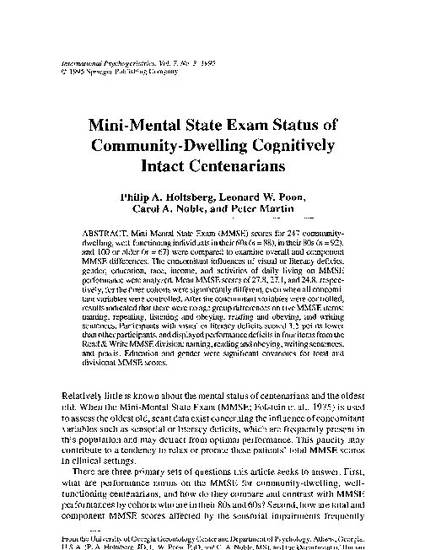
Mini-Mental State Exam (MMSE) scores for 247 community-dwelling, well-functioning individuals in their 60s (n = 88), in their 80s (n = 92), and 100 or older (n = 67) were compared to examine overall and component MMSE differences. The concomitant influences of visual or literacy deficits, gender, education, race, income, and activities of daily living on MMSE performance were analyzed. Mean MMSE scores of 27.8, 27.1, and 24.8, respectively, for the three cohorts were significantly different, even when all concomitant variables were controlled. After the concomitant variables were controlled, results indicated that there were no age group differences on five MMSE items: naming, repeating, listening and obeying, reading and obeying, and writing sentences. Participants with visual or literacy deficits scored 1.5 points lower than other partimcipants, and displayed performance deficits in four items form the Read & Write MMSE division: naming, reading and obeying, writing sentences, and praxis. Education and gender were significant covariates for total and divisional MMSE scores.
Available at: http://works.bepress.com/peter-martin/17/

This article is published as Holtsberg, Philip A., Leonard W. Poon, Carol A. Noble, and Peter Martin. "Mini-Mental State Exam status of community-dwelling cognitively intact centenarians." International Psychogeriatrics 7, no. 3 (1995): 417-427. 10.1017/S104161029500216X. Posted with permission.